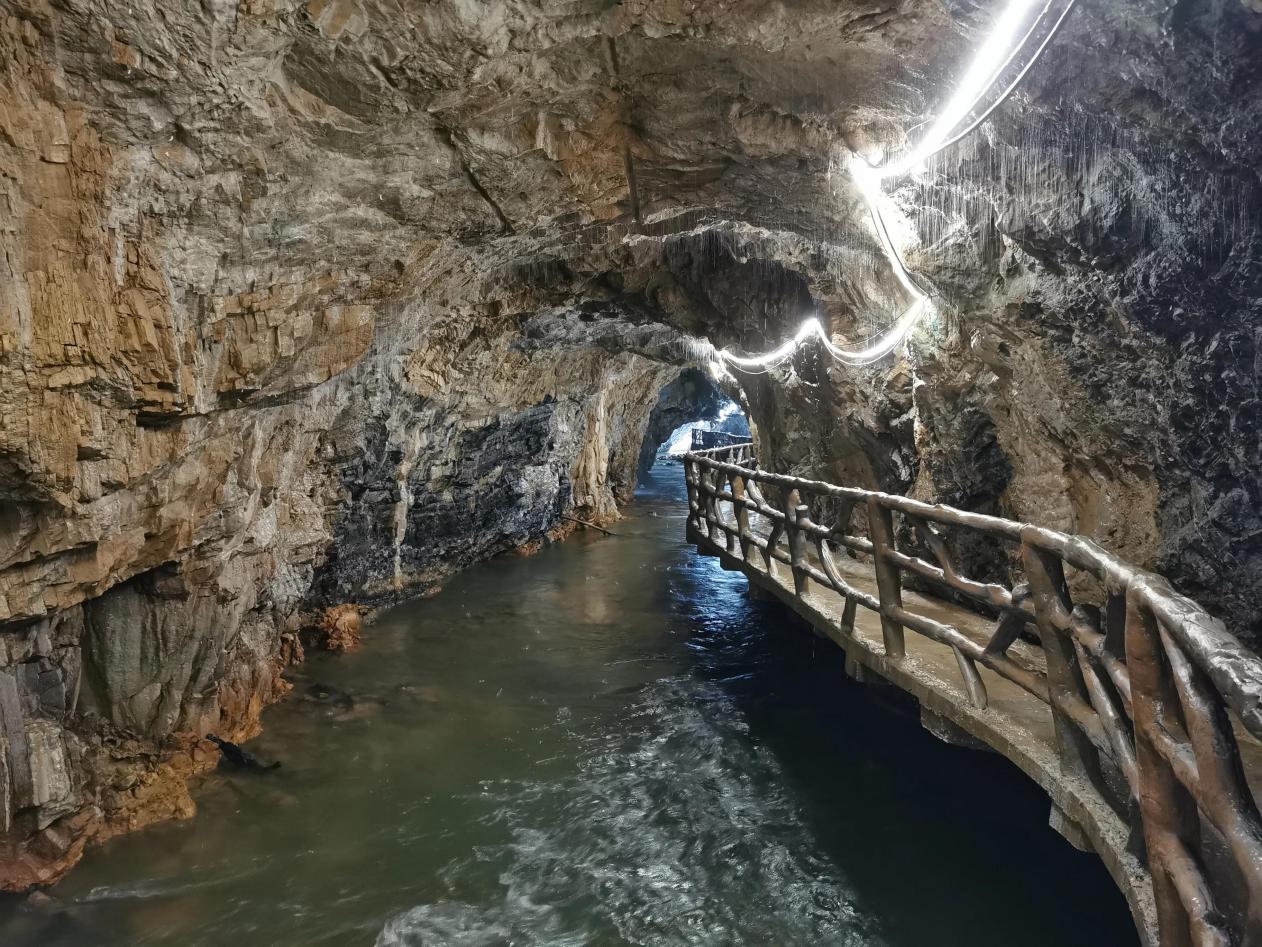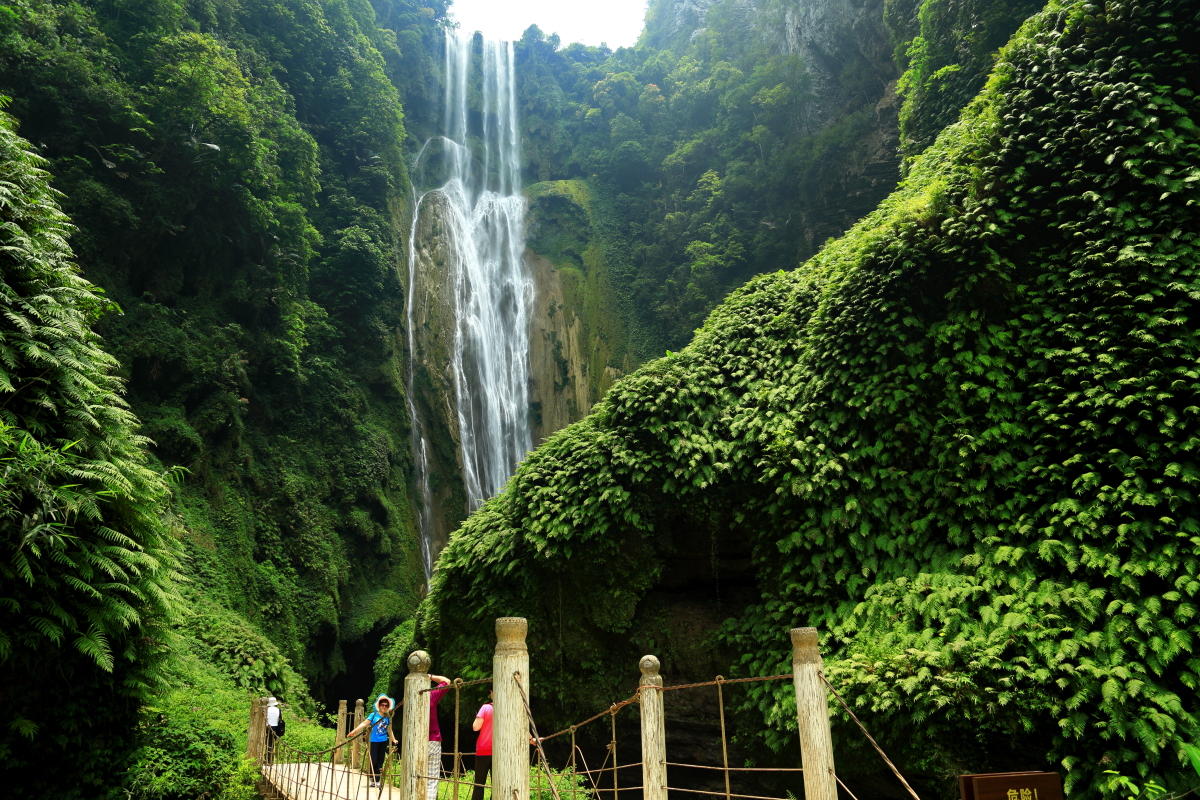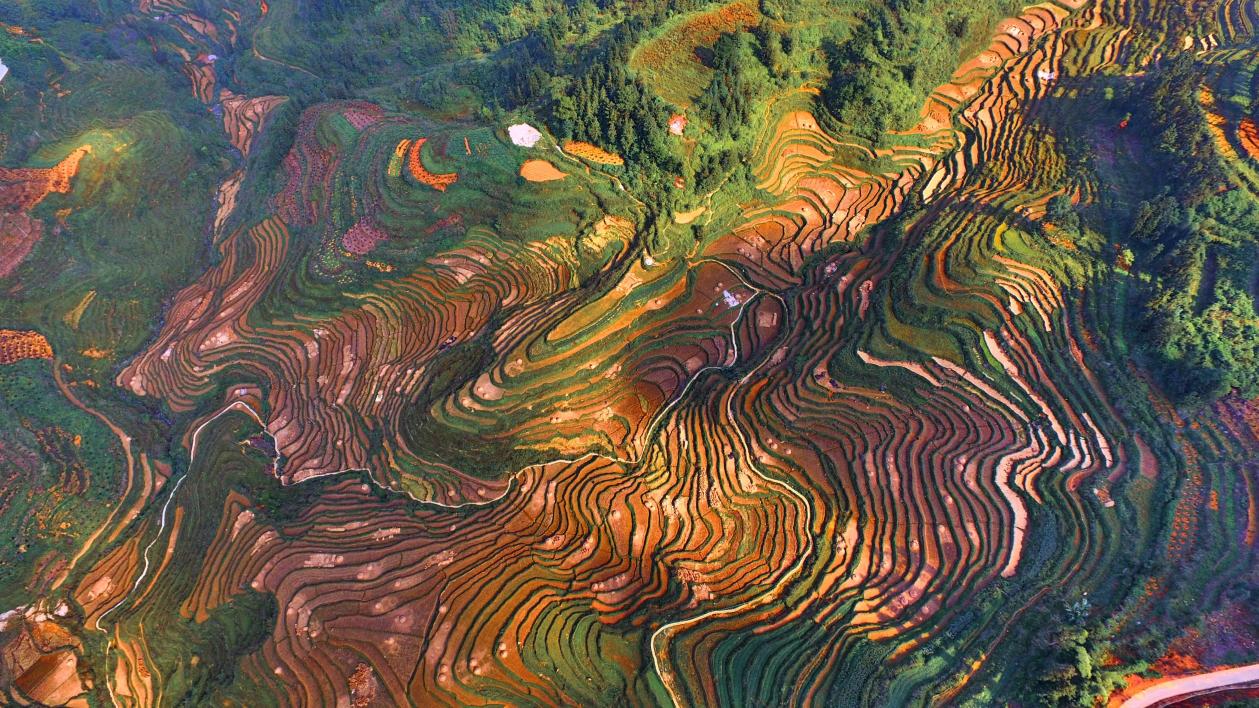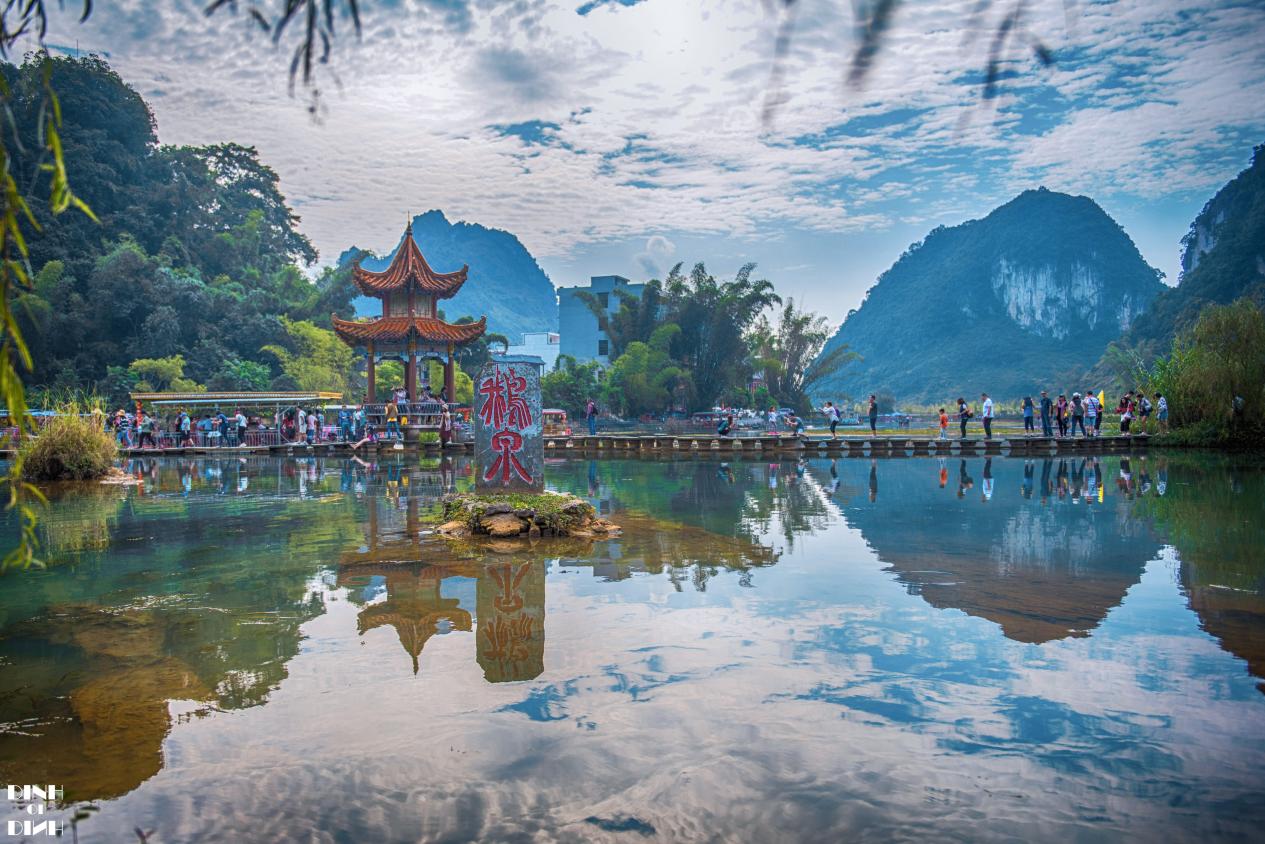

By Xie Zongming
Jingxi is a small county-level city located at the borderline between China and Vietnam. Most of its population is made up of Zhuang, with a percentage of 99.4%, making it an authentic Zhuang settlement. However, when you look further behind the Zhuang atmosphere around Jingxi, you can discover the life value shared by all Chinese nations’ cultures, which is the pursuit of a tranquil life. Jingxi might surprise the tourists with some splendid natural scenery, but most of its beauty comes from the tranquility that makes people want to quietly sit down and watch the time flow by.
A Comprehensive Splendor: Tongling Grand Canyon
The Tongling Grand Canyon is the most famous scenic area and a must-visit attraction in Jingxi. The genesis of the canyon is like the born of a new life, which is a complex of predestination and coincidence. The place was originally a blind valley, meaning that it has a subterranean river underneath. The river on the surface looked like they suddenly disappeared from the ground. Then, due to the crustal movement, the top of the valley that covered the river collapsed and the place became an accessible sinkhole. All of these have shaped this valley into an oddly beautiful complex of landforms. Added with Guangxi’s subtropical climate, the canyon features the sceneries of the rain forest, underground river, sinkhole, waterfall, and karst cave. They are not just a combination of different attractions but a coherent scene with complementary elements.

The climate in Guangxi provides the perfect environment for plants. Hot and rainy weather equally nourishes this weald. In the Tongling Grand Canyon, there are over 2,000 kinds of plants, including numerous protected ones. The plants range from the ferns that are old enough to witness the extinction of dinosaurs to the grasses that just began to sprout last week. The mountainous terrain has kept this forest from human exploitation for thousands of years, for which this variety of lifeforms maintains. In the sinkhole, a 118 m waterfall drops straight down with the impressive force of gravity. Then, the water joins the underground river and flows through the karst cave. The whole canyon runs orderly following the laws of nature, tireless standing for another 10,000 years to come.

Tips: Due to the well-preserved primitive ecology in the area, remember to prepare for the insect problem. Wearing full-length trousers and outwears is advised. It is also advised to bring a raincoat for the sightseeing near the underground river, the sinkhole, and the waterfall since an umbrella is incompetent in such a situation.
The struggle and the miracle: Baze Terraced Fields
However, the splendor of nature near the home did not help feed the people. If you want to witness how life’s struggle became a man-made wonder, you can visit the Baze Terraced Fields in Jingxi. The fields are merely 8 km away from Vietnam. For hundreds of years, the people here have made a living through farming. Surrounded by countless mountains, the small plain in the central barely satisfies their demand for farmlands, for which they put their attention to the lush mountains that they once thought was their hindrance. Though it is hard to imagine from a modern perspective how did the people finish such a magnificent deed with simple tools like pickaxes and hoes, it is clear that human efforts are often surprisingly great when they are united for a consistent goal. It is also a life lesson that some marvelous achievements are merely the accumulation of solving unwanted nuisance.

Terraced fields are always the unreal scene. Seeing smooth curves of nature being modified into clear-cut blocks is like appreciating pixel art. Standing at the foot of the hill, the terrace in front of you stretches orderly to the skyline like the stairways to heaven. The flourishing green in the summer eases the sunburn to your eyes yet the irrigation keeps the field vividly shimmering. In autumn, the fields are in yellow like an unfurled gold foil, waving at the farmers who wove them the yellow coat. Though many years have passed, life here remains quiet and peaceful as long as the four seasons keep coming and leaving.
Normal is the new special: Equan Spring
Equan Spring is one of the three famous springs in Southwestern China. Equan literally means Goose Spring. In folklore, the spring was made from goose fairies’ magic. According to the story, an old lady found two goose eggs by the road. The lady raised the geese and treated them like her children. It turned out that the two geese were fairies in heaven. When they grew up and went back to heaven, the geese used their power to make a spring near the lady’s house to give her a convenient water source and blessed the land with ever-lasting fertility. Even now, there is a small temple in the middle of the spring in memory of the two goose fairies.

The Equan Spring is a perfect place when you unintendedly drop by. Unlike other tourist attractions that highlight the entertainment or views they have to offer, Equan Spring has a normal and tranquil spirit. The ancient stone bridge across the spring signifies the time the village withstood. Below the bridge, there lies so clear a pool of water that allows you to see the underwater plants waving at you. The best thing to do there is to sit by the spring and wait for the sunset, watching the afterglow set the mirror-like water surface on fire. It is this kind of tranquility that makes people question if our lifestyles have gone too far ahead of our hearts and that we should take a few days off to slow our souls down. The spring could be boring to some but it is this boring nature that makes its scenery worth savoring. Sometimes, sitting back and doing nothing is the best way to review your existence in the world.
桂ICP备14000177号 Copyright@2006-2013 Guangxi China-ASEAN Panorama Magazine Agency Co., Ltd. All Rights Reserved